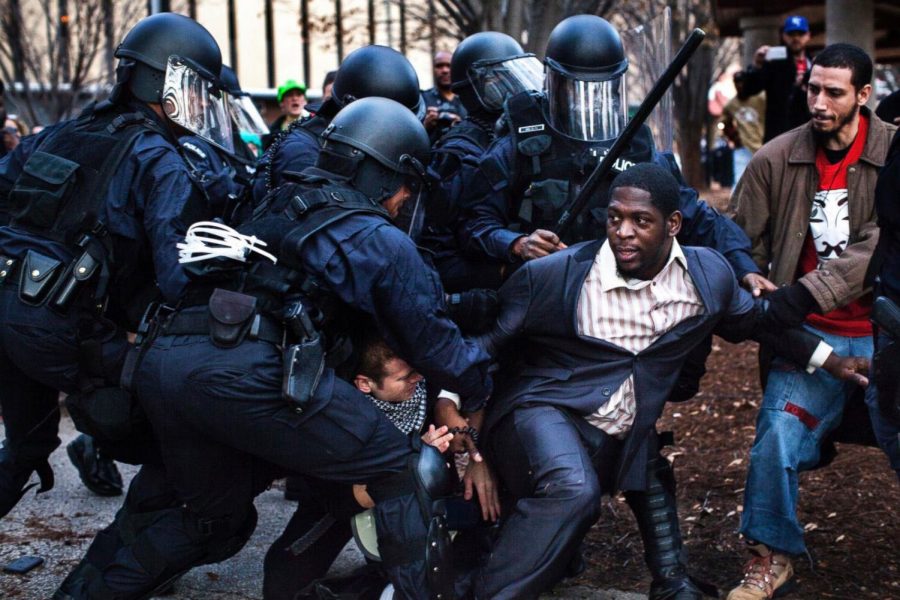Police: Friends or Foes?
Photo by www.abcnews.com
Bishop Derrick Robinson, who became a notable leader among the Ferguson protesters, was arrested by riot police while protesting in a public park (St. Louis, November 30, 2014).
As police brutality continues to be exposed on social media, young minorities are becoming increasingly skeptical and critical of law enforcement. Following the unlawful murder of Eric Garner in New York in 2014, the neglect and eventual suicide of inmate Sandra Bland in Texas in 2015, and the shooting of P.
The discourse and protests have only intensified as similar events continue to be exposed, with the arrival of the Black Lives Matter movement hitting the political scene shortly after. With all the controversy surrounding this issue, I went out to investigate the opinions of Miami High’s population on law enforcement.
When asked if they felt safe around police, responses varied. Junior Ismara Correa said, “There’s times I don’t, with all the videos around of people getting shot for the slightest movement.”
Algebra 2 teacher Mr. Brborich said, “I feel safe around older, more experienced officers. The younger ones have something to prove. Most are on a power trip.”
On the other hand, junior Jacky Zhang said, “In general most police officers are good people. Sure, there are bad apples, but most are doing their job and they’re doing it effectively.”
Senior Anthony Esperanza said, “I feel safe around police. They keep the order and they’re the first ones we go to when we’re in danger.”
Many believe that minorities are particularly at risk around police. Junior Anthony Figuero said, “Too many cops treat minorities like they’re lesser.”
“A lot of these police are super racist. You just gotta look at all these videos coming out,” said junior Vincent Pastran. “You don’t see white kids being choked and arrested over traffic crimes.”
Sophomore Aaron Benitez said, “Minorities are statistically more likely to be victims of unlawful aggression by police.”
City of Miami officer Carlos Fontela sees things differently. “The information about police amplified on social media is super negative; the news only shows aggression,” he said when asked why the youth are critical of law enforcement. “A lot of those situations shown are escalated by bold behavior. The citizen thinks their knowledge of the law is better than the officer’s, which is almost never the case, and then they proceed to challenge the officer. Rookies are more likely to panic, so if you challenge them, then things will spiral out of control.”
There is hope that tensions can be reconciled between the public and police. Senior Katheryn Gallo said, “Police should build more programs in the community. They shouldn’t be on the defensive all the time.”
Jacky Zhang said, “There should be more police-funded programs in inner-cities. What’s important is keeping kids off the streets in the first place. They should be in schools or community centers.”
Many of these “wished-for” programs actually do exist. “It’s a popular misconception that cops only come around when there’s a crime,” said Officer Fontela. “We work every day in the community to ensure kids in vulnerable environments get the guidance they need, preventing crimes from happening in the first place.”
In fact, Officer Fontela serves as a juvenile mentor for JAM (Juvenile Assistance and Mentorship), a police organization which aims to mentor kids leaving juvenile detention. The mentors check in with the juveniles, their parents, their counselors, and their teachers on a daily basis to make sure the student is making productive changes.


